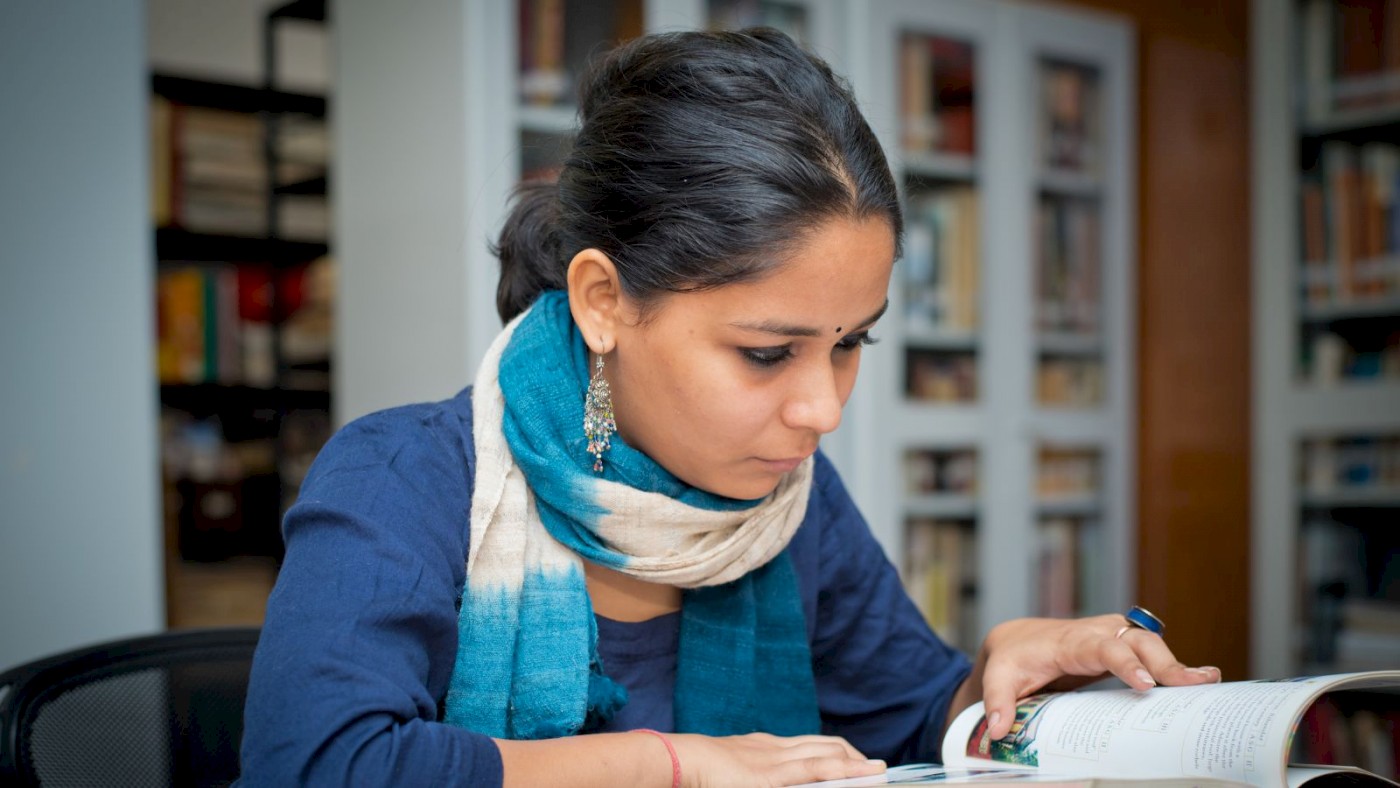
The University’s Ahmedabad Writing Programme (AWP), which brings together writers, translators and publishing professionals on a common platform, has launched a two-week to one-month Writing Residency for writers writing in different languages. The residency aims to facilitate cultural exchanges and interactions among the writers by engaging them in workshops, readings, and conversations about their creative process. The first iteration of the residency hosted two noted writers, Anukrti Upadhyay and Radhika Iyengar, who spoke about their writing and publishing experience, and also produced short literary pieces on the city of Ahmedabad.
Anukrti writes fiction and poetry in both English and Hindi, and her writings have been carried in several publications. Her English works, twin novellas Daura (2019) and Bhaunri (2019), and the novel Kintsugi (2020), published by HarperCollins India, have been nominated for awards. Radhika, a journalist and debut author, writes on various subjects including arts and culture, marginalised communities, history, and gender. Her debut non-fiction book, Fire on the Ganges: Life among the Dead in Banaras (HarperCollins India) won the Gaurang River Prize for Best Non-Fiction (2024) and the Kalinga Literary Award (Youth).
The Structure and Craft of Writing
In a conversation on their narrative and craft with the Director of AWP, Professor Pallavi Narayan, the two authors discussed the process of crafting their narratives, and the imperative for deep research and compassion in shaping their stories and characters. They asserted the importance of structure in creating the narrative without compromising on the intuitive process of identifying and engaging with the varied characters, ranging from members of marginalised communities to strong and tenacious women, in their books. They also highlighted their engagement with the literary ecosystem in India and how this contributes to their writing.
The Challenges of Translation and Storytelling
In another discussion on the nuances of translation and creative writing with reputed author Jerry Pinto, the writers debated the challenges of navigating between fiction and non-fiction and how these boundaries at times get blurred in their work. While Pinto suggested that he looks for a space of reconciliation as a translator and practitioner of both forms, Anukrti stressed the necessity of penning stories with honesty and authenticity. Radhika, who predominantly writes non-fiction, pointed out that she focuses on engaging with readers through true stories celebrating the spirit of human resilience. In addition to the modalities of translating both fiction and non-fiction, the three writers discussed the process of choreographing their research into the final published work, and ways of imbuing their marginalised characters, especially women, with agency and autonomy.
Pinto cited examples of erstwhile courtesans who were exponents of art and repositories of ancient Indian culture and heritage. However, women down the ages have been leading lives of quiet despair, deprivation and denial. Anukrti pointed out that in order to depict women as powerful subjects in their work, writers at times portray them as ‘devis’, possessed characters, or demon slayers, which becomes a means for the women to overcome their suffering. “When a woman acquires some sort of competitive power, and rises above her subjugation, there is a backlash, as men see her power as a challenge”, said Anukrti.
An Enriching Experience for Students and the Resident Writers
The perceptive discussions and workshops held during the Residency offered a unique learning experience to both the resident writers as well as students of the Post Graduate Diploma in Translation and Creative Writing programme, under the Ahmedabad Writing Programme at the University.
At the conclusion of the Residency, Anukrti expressed her gratitude for “the opportunity to spend time at Ahmedabad University and in the historic city of Ahmedabad, with its old and new structures, stories and divisions, the hot furnace of late April fragrant with neem blossoms and skies dramatic with cumulous clouds.” She pointed out, “Like all old cities, I know the real Ahmedabad exists somewhere along the continuum of its past and its future, between reality and imagination… This chance to spend time writing and interacting with the community at Ahmedabad University, an environment intellectually stimulating and conducive to the discipline that the practice of writing requires, is special and I hope more universities in India offer such residencies.”
Applauding her experience as a writer-in-residence at the Ahmedabad Writing Programme, Radhika said, “It has enabled me to commit to the singular, focused act of writing each day, without any distractions… it also helps facilitate valuable interactions with professors on campus and provides access to a plethora of books at the library… The opportunity has [also] given me an impetus to admire the city’s architecture, its heritage, and learn about the many stories that thrive within it… The Residency will immensely benefit writers who desire unbroken time for crafting their stories, while also finding inspiration in a historic city like Ahmedabad.”